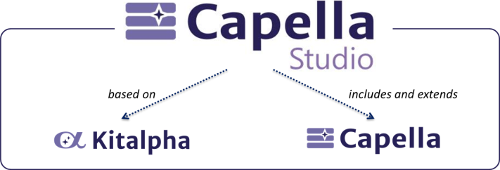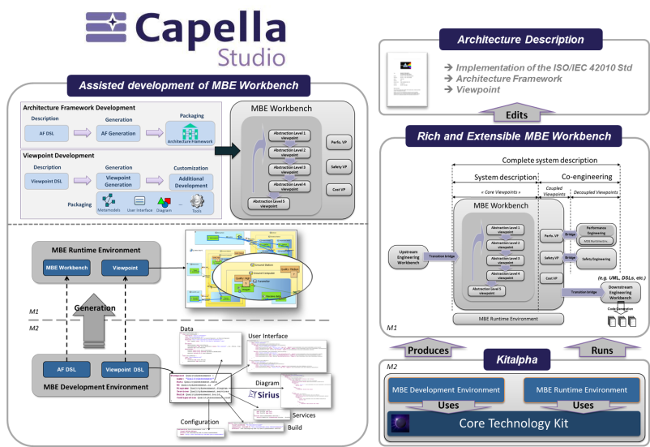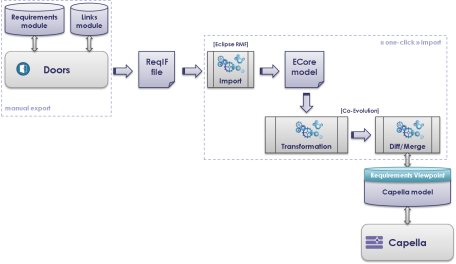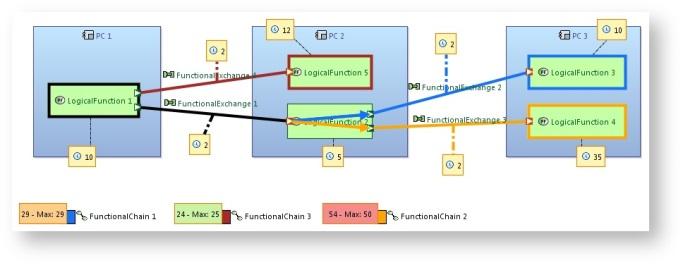Extensibility of Capella with Capella Studio
Capella Studio is the IDE (integrated development environment) to develop viewpoints and add-ons for Capella. It is based on Kitalpha which is an IDE for the development of model-based workbenches. Capella Studio integrates Capella in order to access to all the Capella development artefacts (e.g. metamodels, diagrams, code), to enrich and customize them.
Capella Studio offers the capability to create Capella add-ons in a standard way with Java and the Eclipse Modeling Framework (EMF). To develop complex and coherent extensions, Kitalpha implements the notion of viewpoint, in reference to the ISO/IEC-42010 standard. Capella is then enriched with new types of data, diagrams, and services, to address new engineering domains such performance or safety. Capella Studio eases the development of viewpoints with the technique of DSL. A set of complementary textual editors enable to define meta-model extensions, editors (contributions to properties view), diagrams (contributions to Sirius diagram specifications), services (e.g., transformation rules), and process support through an activity explorer. A generation approach hides most of the technical implementation details. In a very short time, a new viewpoint is deployable and seamlessly executable in Capella.
The following add-ons and viewpoints are already downloadable on the Capella website.
System to Subsystem Transition
This add-on is a System to Subsystem Transition. It initializes a new Capella project from an existing model. This transition extracts suitable model information from a selected Capella source component and ensures top/down propagation of updates.
The automated and iterative transition between system and subsystems is a great help for managing several levels of engineering. The contract and model of the subsystems are computed from the system architecture. Ideally, subsystems stakeholders are involved in co-engineering activities at system level before the transition occurs.
XHTML Documentation Generation
This add-on enables the end-user to generate an HTML website from a Capella project.
Sharing models with all stakeholders is essential in model-based systems engineering. Publishing and sharing HTML versions of models helps make models THE reference of all engineering activities.
Requirements Viewpoint
This add-on provides a means to import a set of requirements from a ReqIF file (Requirement Interchange Format / OMG Standard).
The import is iterative (diff/merge based) and a set of tools is provided to link the model elements to the requirements.
Basic Viewpoints
This add-on provides three simple viewpoints which allow annotating a Capella model with some non-functional properties such as “Mass”, “Price” or “Performance”.
About the Authors








